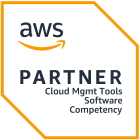
Why your DevOps is more crucial than your developers for accelerating application delivery
Our world has become extremely fast-paced in recent years, and the demand for rapid turnaround in application delivery has never been higher. Traditionally, most of the emphasis is placed on the development teams to push projects forward and bring new products to market. DevOps teams rarely get to share this limelight. However, the effectiveness of these developments relies heavily on the quality of integration and operational support provided by DevOps teams, without which even the best-developed applications could falter in deployment. The true unsung hero in ensuring that these innovations effectively reach the market and perform flawlessly is the DevOps team.
While there is no debate on the importance of developers in creating the foundational software, this article maintains that DevOps is the critical function within your R&D department that turns the developmental potential into operational success. Thus, optimizing the utilization of their time is crucial to streamlining and accelerating application delivery, and to gaining operational excellence and a competitive advantage. We then offer strategic solutions that may enhance DevOps’ capacity to significantly influence business goals.
The pivotal role and challenges of DevOps
It would be hard to overstate the importance of DevOps teams to application delivery, given their extensive responsibilities across the different stages of the software development lifecycle. Starting with their early involvement in planning and design, ensuring scalability and reliability. Then, they manage the Continuous Integration and Delivery (CI/CD) pipeline, automating processes to speed up the release cycle and integrate new code without causing interference. DevOps teams also handle deployment and scaling, optimizing applications for performance across diverse environments. Finally, once a new product or feature hits the market, it is up to your DevOps team to monitor and maintain its performance.
Operational excellence as a business driver
Achieving operational excellence isn’t just about maintaining system functionality; it’s about leveraging every team’s capabilities to their fullest, particularly DevOps, whose roles in streamlining and optimizing processes are foundational to gaining a competitive edge. With DevOps professionals at the helm of process optimization, they are indispensable in maintaining high system performance and adaptability.
Furthermore, when DevOps’ time is utilized correctly, it allows for strategic decision-making through data-driven insights. With continuous monitoring and feedback, it’s possible to anticipate market trends and adjust strategies accordingly, which enables proactive decision-making.
The cost of continuous DevOps maintenance
Despite their pivotal role, DevOps professionals often find themselves mired in routine tasks such as continuous monitoring and resource optimization, particularly in cloud environments where most applications are developed. This frequent engagement in day-to-day tasks, exacerbated by the ambiguous definition of their role—often turning them into a hub for numerous responsibilities without clear ownership—can significantly detract from their strategic focus. In that sense, optimizing the use of your DevOps team’s time is essential not only to enhancing their impact but also to achieving true operational excellence. Lifting these burdens off their backs can substantially increase the impact of your DevOps, subsequently helping to achieve operational excellence and driving business value.
Empowering DevOps: Integrating and enhancing strategic contributions
For organizations aiming to fully leverage their DevOps teams, integrating them strategically and fostering a DevOps-centric culture are crucial. Strategic enhancements in DevOps practices benefit not only the DevOps team itself but also boost the effectiveness of the development teams for a more productive, agile development environment.
Here’s how this can be effectively achieved:
- Integrating cross-functional teamwork and feedback mechanism: Building cross-functional teams that include DevOps, developers, and business unit members is crucial for fostering a collaborative environment from the outset of any project. These teams should operate with consistent interaction and open channels to exchange feedback, ensuring that DevOps insights directly influence all phases of strategy and execution. This structure not only enables DevOps professionals to provide their input effectively but also establishes robust and necessary feedback loops which are integral for adapting strategies to DevOps realities and enhancing overall project efficacy.
- Invest in technology that empowers your DevOps: Equip your DevOps teams with technology that supports advanced monitoring, analysis, and automation. Numerous cloud-native tools and third-party vendors provide a high level of visibility and recommendations for optimization, which will eliminate the need for your DevOps’ constant care. Then, by automating monitoring and optimization processes to free up your DevOps team’s time and attention, they will be able to focus on accelerating application delivery and assuming more significant strategic roles.
By focusing on these key areas, organizations can transform their DevOps from a support function to a central driver of strategic success. This integrated approach not only enhances operational capabilities but also aligns them directly with the business’s long-term goals and immediate needs.
Harnessing DevOps for success
There’s no denying that the role of DevOps has changed dramatically in recent years. While it has become crucial to the strategic success of organizations, it has also been “plagued” with responsibilities aimed at operational functionality, often relegating DevOps teams to countless hours of routine optimization tasks. By allowing them to focus on strategic tasks and investing in automation tools that help free their time from routine maintenance, DevOps teams can spend more time on strategic initiatives, drive business growth, and fuel long-term innovation.








